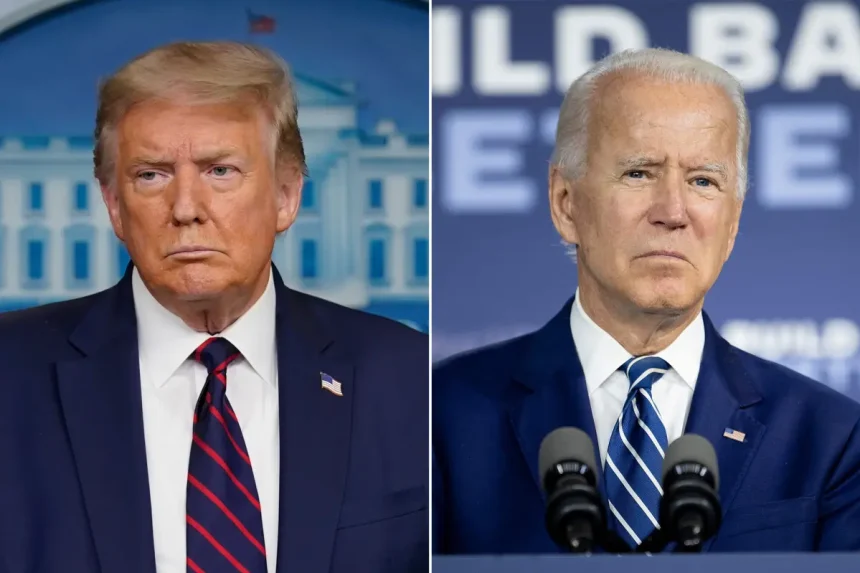In the annals of U.S. foreign policy, few agreements have been as contentious as the diplomatic deal struck by former President Donald Trump, which some critics have labeled as one of the worst in U.S. history. The agreement, which was met with widespread skepticism and concern, posed significant challenges for the subsequent administration of President Joe Biden. This article explores the origins of Trump’s controversial deal, the rationale behind it, and how Biden ultimately chose to follow through, despite the risks and criticisms involved.
The Trump Administration’s Diplomatic Gamble
During his presidency, Donald Trump often emphasized his unconventional approach to diplomacy. He was known for breaking with established norms, pursuing bold, sometimes controversial, strategies in an effort to achieve what he described as “America First” outcomes. One such approach led to the signing of a diplomatic agreement that many analysts and politicians quickly condemned.
The deal, which involved significant concessions to a foreign power without securing strong commitments in return, was criticized as being poorly negotiated and overly favorable to the other party. Critics argued that the agreement undermined U.S. interests, weakened the country’s strategic position, and set a dangerous precedent for future negotiations.
Why Was the Deal Considered Controversial?
The controversy surrounding Trump’s deal stemmed from several key factors:
- Lack of Reciprocity: The agreement was seen as heavily skewed in favor of the other party, with the U.S. receiving little in return for significant concessions.
- Strategic Missteps: The deal was viewed as a strategic blunder that compromised U.S. security and diplomatic leverage in a critical region or on a key issue.
- Domestic and International Criticism: Both domestic political figures and international allies expressed concern that the agreement would have long-term negative consequences for U.S. foreign policy.
Despite these concerns, the Trump administration defended the deal as a necessary step to achieve specific goals, arguing that it would lead to greater stability and a more favorable outcome in the long run.
Biden’s Inherited Challenge
When Joe Biden assumed the presidency, he faced the difficult decision of whether to uphold or dismantle Trump’s controversial deal. Biden, who campaigned on a platform of restoring traditional U.S. diplomacy and rebuilding alliances, was initially critical of many of Trump’s foreign policy decisions, including this particular agreement.
However, after careful consideration, Biden chose to follow through with the deal. His administration cited several reasons for this decision:
- Geopolitical Stability: Dismantling the agreement could have led to immediate instability, potentially exacerbating tensions and leading to a broader conflict.
- International Commitments: The Biden administration recognized the importance of maintaining U.S. commitments, even those made by a previous administration, to preserve credibility on the world stage.
- Strategic Calculations: Biden’s team likely assessed that the cost of reversing the deal outweighed the potential benefits, opting instead to manage and mitigate its negative impacts.
The Consequences of Following Through
Biden’s decision to uphold Trump’s deal has had mixed results. On one hand, it helped avoid an immediate crisis and maintained a degree of continuity in U.S. foreign policy. On the other hand, many of the deal’s predicted downsides have materialized, including a perceived weakening of U.S. influence in the region and strained relations with some allies.
Critics of Biden’s choice argue that he missed an opportunity to renegotiate or reject the deal in favor of a more balanced and strategically advantageous agreement. Supporters, however, contend that the decision was pragmatic, recognizing the complex realities of international diplomacy and the risks of abrupt policy reversals.
Conclusion
Trump’s controversial diplomatic deal, labeled by some as one of the worst in U.S. history, presented a significant challenge for the Biden administration. By choosing to follow through with the agreement, Biden demonstrated a commitment to maintaining international stability and upholding U.S. commitments, even when faced with difficult decisions. The long-term impact of this decision will continue to shape U.S. foreign policy in the years to come.







